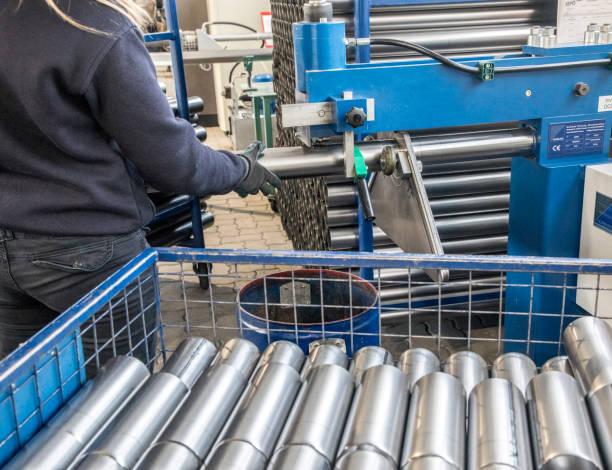Understanding Nickel Alloys: Properties, Applications, and Industrial Significance

In modern engineering and manufacturing, material selection is crucial for performance, durability, and cost-efficiency. One of the most versatile and essential materials in high-performance applications is the nickel alloy. But what is nickel alloy? Simply put, it's an engineered metal blend that incorporates nickel as a base element, often mixed with chromium, molybdenum, iron, or copper. These combinations provide superior resistance to heat, corrosion, and mechanical stress.
Nickel alloys are widely used in industries such as aerospace, marine, chemical processing, and power generation, where performance under extreme conditions is non-negotiable. This article explores the composition, benefits, applications, and common types of nickel alloys used today.
What Is a Nickel Alloy?
Nickel alloy refers to a class of metal alloys primarily composed of nickel and enhanced with other elements for improved mechanical or chemical performance. These elements are added in varying proportions to optimize properties such as:
-
High-temperature strength
-
Oxidation and corrosion resistance
-
Magnetic characteristics
-
Electrical conductivity
The versatility of nickel alloys lies in their ability to maintain structural integrity even under harsh conditions.
Types of Nickel Alloys
Nickel alloys are generally categorized into two primary groups: nickel-copper alloys and nickel-based superalloys.
1. Nickel-Copper Alloys
This group includes alloys like Monel, composed of approximately 67% nickel and 30% copper. These materials are particularly known for:
-
Excellent resistance to seawater and steam
-
High strength and toughness
-
Resistance to acidic and alkaline environments
Common applications include marine components, pump shafts, and heat exchangers.
2. Nickel-Chromium or Nickel-Based Superalloys
These are engineered for extreme temperatures and pressures. Common types include:
-
Inconel: Excellent resistance to oxidation and corrosion, widely used in jet engines and power plants.
-
Hastelloy: Known for superior performance in chemical processing environments.
-
Nimonic: Maintains strength at elevated temperatures, ideal for aerospace components.
These alloys are ideal for environments where other materials would fail, especially in high-heat or corrosive settings.
Key Properties of Nickel Alloys
Nickel alloys are valued for a unique combination of properties that make them stand out in various industries:
1. Corrosion Resistance
Nickel’s natural resistance to rust, acids, and alkalis makes it a top choice for applications involving exposure to chemicals and moisture.
2. High-Temperature Strength
Nickel alloys retain mechanical strength even at extreme temperatures, often exceeding 1000°C. This makes them ideal for gas turbines, nuclear reactors, and automotive exhaust systems.
3. Thermal Expansion and Conductivity
Many nickel alloys have low thermal expansion, which helps maintain dimensional stability. Their conductivity also makes them suitable for electronic components.
4. Weldability and Formability
Despite their high strength, nickel alloys are relatively easy to weld and fabricate. This makes them practical for custom parts and assemblies.
Industrial Applications of Nickel Alloys
Nickel alloys are a cornerstone in numerous sectors that demand reliability and endurance. Some key industries include:
1. Aerospace and Defense
Used in turbine blades, exhaust ducts, and heat shields, nickel-based superalloys withstand the immense thermal stress found in jet engines and rocket motors.
2. Chemical and Petrochemical Processing
Corrosion-resistant alloys like Hastelloy are extensively used in chemical reactors, piping, and tanks that handle aggressive substances.
3. Marine Engineering
Nickel-copper alloys such as Monel are ideal for seawater applications, including propeller shafts, pumps, and valves, due to their excellent resistance to saltwater corrosion.
4. Power Generation
In nuclear and conventional power plants, components such as heat exchangers, steam generators, and reactor cores utilize nickel alloys to ensure long-term durability.
5. Electronics and Instrumentation
Nickel’s magnetic and conductive properties are leveraged in electrical resistance wires, sensors, and thermocouples.
Advantages of Using Nickel Alloys
Nickel alloys offer multiple benefits that justify their relatively high cost:
-
Durability: Long service life reduces maintenance and replacement costs.
-
Versatility: A wide range of compositions means there's a nickel alloy suitable for nearly every application.
-
Thermal & Corrosive Stability: Performs consistently in the most challenging environments.
These factors make nickel alloys a strategic material choice, not just a functional one.
Considerations for Manufacturers
When selecting nickel alloys for your project, consider the following factors:
-
Operating Environment: Will the material face high heat, corrosive chemicals, or high pressure?
-
Mechanical Requirements: Do you need high tensile strength, ductility, or fatigue resistance?
-
Fabrication Needs: Can the material be welded, machined, or cast easily?
For best results, it’s advisable to consult with an experienced machining partner that specializes in high-performance materials. Companies like KMYT Machining provide tailored solutions for CNC-machined components using advanced nickel alloys and other specialized metals.
Future of Nickel Alloys in Advanced Manufacturing
With the rise of Industry 4.0 and increasing demand for high-performance parts in sustainable technologies, the role of nickel alloys is expected to grow. Emerging applications include:
-
Hydrogen fuel cells
-
Electric vehicle battery systems
-
Advanced 3D printing of high-temp parts
Nickel alloys are well-positioned to meet the evolving challenges of modern engineering.
Conclusion
Nickel alloys are indispensable in today’s high-demand industrial landscape. Their unmatched combination of strength, corrosion resistance, and versatility ensures their relevance across a broad range of applications. If you're wondering what is nickel alloy? think of it as the backbone of modern manufacturing — reliable, robust, and ready to perform under pressure.
- Art
- Causes
- Crafts
- Dance
- Drinks
- Film
- Fitness
- Food
- Games
- Gardening
- Health
- Home
- Literature
- Music
- Networking
- Other
- Party
- Religion
- Shopping
- Sports
- Theater
- Wellness


